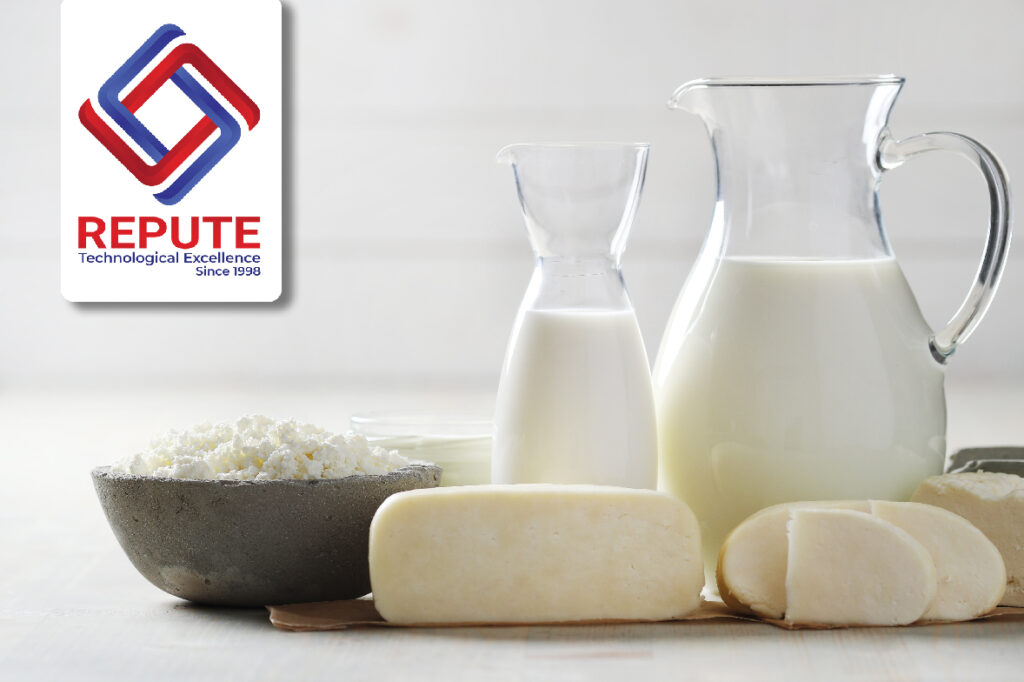A healthy diet has always included dairy products that have undergone fermentation. In the past, the fermentation process used milk that gradually soured as a result of organisms that were already present in the milk. But with the help of modern microbiological methods, a number of fermented milk products with improved nutritional content may now be made under controlled conditions. This section provides a summary of the numerous health benefits of fermented dairy products that consumers get through the regular intake.
Why Fermentation?
Fermentation is a process by which microorganisms break down sugars and convert them into other useful chemicals. Fermentation usually implies that the action of microorganisms is desired. The process of fermentation has been used since ancient times to preserve perishable foods such as yogurt, cheese, and other dairy products used in our daily diet. The use of fermentation in food processing has been recognized as one of the oldest forms of food preservation and is still used today.
The main reason for fermentation in dairy products is to create a more flavourful product by adding a sour taste to it. Fermented dairy products are healthier because they contain probiotics that are good for digestion and gut health.
How are dairy products fermented?
Dairy products are in great demand even from the earlier phase of time. Processing dairy products can be enlisted majorly in two ways:
Natural anaerobic fermentation
When naturally existing bacteria and other microbes break down the food by devouring the sugars in it, fermentation takes place. Lactobacteria is the name given to this unique class of bacteria. Although there are numerous diverse strains, they all share the same trait. Lactic acid is produced as a byproduct of fermentation. This helps to process certain dairy products for use.
Industrial Fermentation
Industrial fermentation is a phrase from chemical engineering that refers to processes that utilise a chemical change brought on by a living thing or an enzyme, particularly bacteria, yeasts, moulds, or fungus, that produces a particular product. Fermentation technique was utilised, mostly for the manufacture of dairy products on a large scale.
Different dairy products need different terms of production and it solely depends upon the variety of products we use for fermentation. Some of the common methods of industrial fermentation are listed below :
- Choose high-quality milk and divide it using a centrifugal cream separator into the cream and skim milk. There should be no fat at all in the skim milk. Ideally, the cream must contain a lot of fat and can vary according to the product we are preparing to.
- The skim milk should be heated for a prescribed time at the desired temperature for definite dairy products, then cooled. An alternative is to use a batch pasteurizer.
- With the use of a mechanical agitator, combine warm skim milk with the amount of lactic starter in a pre-sterilized incubation/storage vat. Using hot water circulation, keep the vat’s temperature based on the product prepared.
- For around the time mentioned, incubate it.
- Stop incubating once the desired form of the product is obtained.
- Insert the predetermined amount of mixture into a planetary mixer.
- Add the necessary amounts of pasteurised ingredients according to the product.
- Run the mixer at various speeds to combine the ingredients.
- Flavours may also be added to dairy products created.
- Cool it and store it under refrigerated conditions.
What is the role of bacteria in fermented dairy products?
A good source of nutrients and fluids for hydration, milk has been consumed by humans for thousands of years. A quick and easy approach to extending milk’s shelf life while enhancing its safety is to ferment it.
Dairy products that have undergone fermentation are made from fermented milk using the growth of good and healthy bacteria. For the fermentation of milk, various strains of bacteria and fungi are utilised to create a wide range of dairy products, including curd, yogurt, Paneer/cheese/whey/hard cheese. Dairy products that have initiated fermentation contain lactic acid bacteria as well as bioactive substances and metabolites formed from bacteria. These products are an ideal substrate for the integration of components or nutrients that provide refined product capabilities that transcend pure nutrition because of their unique properties.
The most frequent performers of lactic acid fermentation are lactic acid bacteria. They are classified as GRAS because of their widespread use in fermented foods and their availability in nature, which includes the mucosal surfaces of the human body. The major lactic acid bacteria genera are Lactobacillus, Leuconostoc, Lactococcus, Pediococcus, and Streptococcus. These bacteria convert lactose, the main carbohydrate in milk, into lactic acid and a few other compounds during the fermentation process. Because the acid precipitates the milk’s proteins, fermented products typically have a thicker consistency than milk. Dairy products are a wonderful source of protein, calcium, phosphorus, and B vitamins because milk is so rich in these minerals and it is produced by the fermenting mechanisms to obtain a healthy lifestyle for individuals.
The inclusion of fermented dairy products in healthy diets has received similar attention. These fermented dairy products have been consumed for thousands of years by people from many cultural backgrounds. Because fermented dairy products are thought of as both food and a portion of the complete food with numerous health advantages. Yogurt, paneer, whey, cheese, sour cream, and buttermilk are just a few of the fermented dairy foods that have seen a substantial rise in consumption and popularity in recent years due to their health-promoting qualities.
Are fermented dairy products good for health?
The benefits of fermented food products cannot be explained within a definite time or place. It is globally signified as a powerful aid of health to individuals irrespective of age. Fermented dairy products, like yogurt, have high calcium content, which is good for bones. Fermented dairy products also include phosphate and vitamin B, which are essential to human health. Its high nutritional content may explain why consuming it is linked to enhanced bone density, faster growth in kids, and a lower risk of hip fracture in elderly people. These fermented products are good sources of health and can reduce the multiple dilemmas caused due to the fast and junk food culture.
Effects of fermented products on your body.
Fermented dairy products exhibit wide benefits to the human body on consumption. It is regarded as a vital part of the human diet all over the world to reduce the risk of the modern unaware diet. Let’s examine the most common beneficial effects on the body:
Increases energy levels: Fermented dairy products include a significant number of minerals and amino acids that help us feel energised all day long.
Enriches immunity: Fermented dairy products are able to boost immunity levels since they contain antibiotic compounds that assist your body in effectively fighting germs.
Improves gut health: Digestion is aided by fermented dairy products, which are also advantageous. They contain gut-friendly bacteria that are helpful for metabolism in addition to vitamins and minerals.
Reduces carbohydrates: When compared to milk products made from ordinary milk, fermented milk products have far lesser carbohydrate content. Because of this, fermented milk products constitute a great alternative to traditional milk products. Milk is fermented, which also reduces the number of carbohydrates it contains
Stimulates heart health: Numerous studies have shown a connection between yogurt consumption and a decreased risk of heart disease and stroke. These effects could be explained by healthy blood fat levels, including decreased total cholesterol and lower blood pressure.
Eases diarrhoea: Lactobacillus casei fermented milk may be helpful for children and newborns who are experiencing diarrhoea.
Best in Pregnancy: Research indicates that consuming fermented milk with a variety of bacteria both during pregnancy and after birth lowers the likelihood that a young kid may acquire eczema.
Controlling Blood Sugar: Studies have linked yogurt to a reduction in blood sugar. Additionally, it can aid in preventing metabolic syndrome and the dangerous side effect of type 2 diabetes. If you already have diabetes, consuming yogurt containing a variety of bacterial and yeast strains can assist in maintaining normal blood sugar, blood pressure, and cholesterol levels.
Combating Obesity: According to studies, obese persons have a very distinct gut microbiome from thin people. Obesity can be prevented or managed with the aid of a healthy biome present in fermented dairy products.
Support for Hypertension: Eating fermented foods can reduce your risk of developing high blood pressure. Dairy that has been fermented and contains numerous strains of beneficial bacteria and yeast is also helpful. They aid in the blocking of an enzyme linked to blood pressure elevation.
Oral health benefits: The advantages of fermented meals can begin in your mouth, which is the first organ of digestion. Better dental health might result from the good bacteria that nourish the biome in your mouth. This might result in fewer tooth tartar and plaque accumulation. Additionally, it might aid in preventing gum disease and cavities.
Fermented Dairy products are efficient in maintaining a healthy lifestyle through the enhancement of their nutritious value. Just remember to take on the best-fermented dairy products in the town to safeguard your health.



